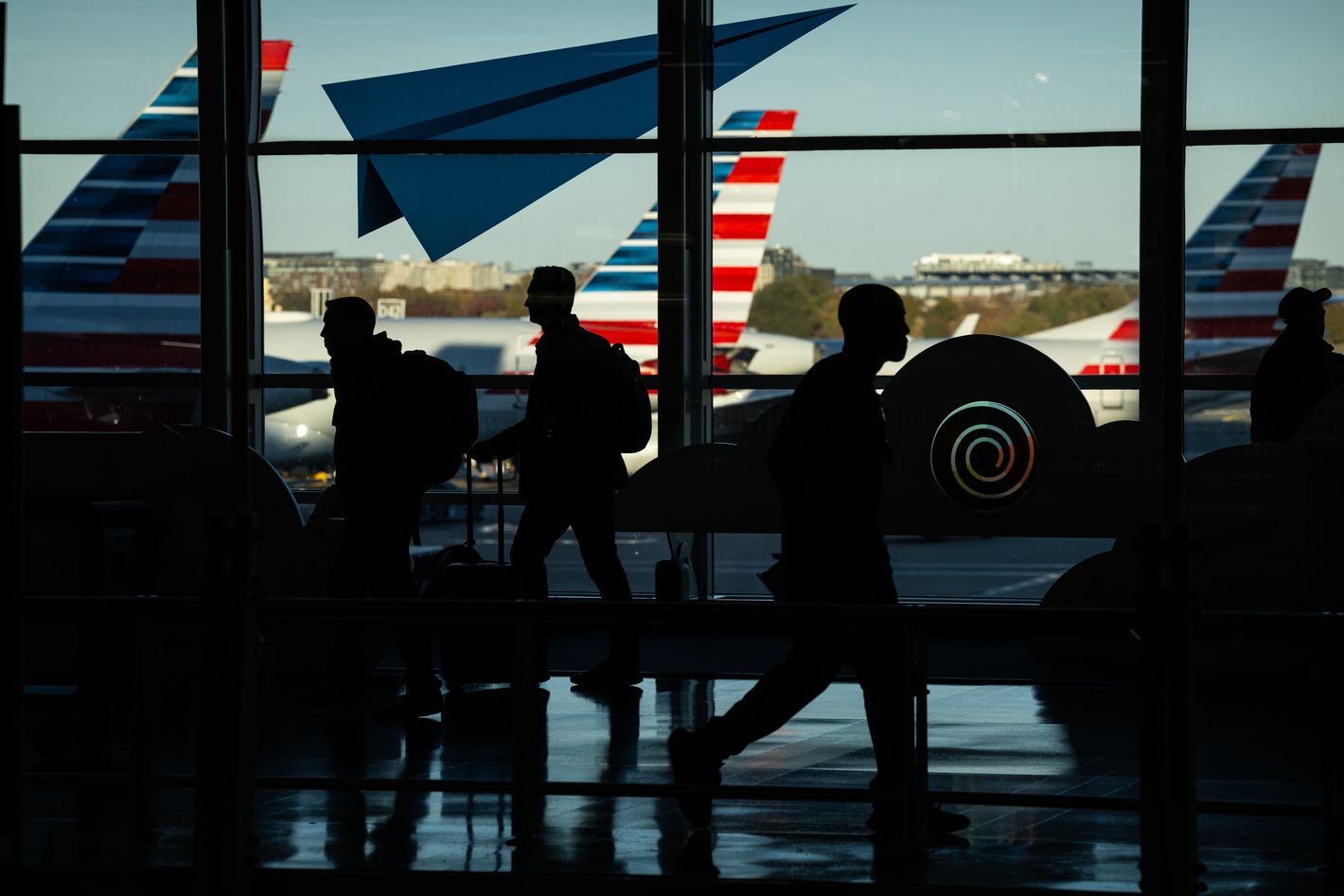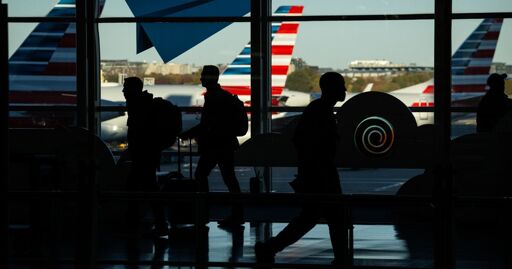
Photo: Graeme Sloan/Bloomberg via Getty Images
After more than a month under the mounting pressure of the U.S. government shutdown, the national air-travel system now appears to be in the early stages of collapse with the FAA announcing Wednesday that it intends to reduce airline flights by 10 percent at 40 of the nation’s busiest airports.
The cuts will be phased in gradually with a reduction of 4 percent on Friday, 5 percent on Saturday, 6 percent on Sunday, and a full 10 percent next week. As of 7 a.m. today, the aviation data company Cirium stated that 739 flights, amounting to 3 percent of Friday’s originally scheduled flights, had been cancelled. By next week, if the government meets its goal, as many as 4,000 flights per day could be canceled.
Secretary of Transportation Sean Duffy had previously indicated that even more severe reductions might be in the offing. “You will see mass flight delays, you’ll see mass cancellations, and you may see us close certain parts of the airspace because we just cannot manage it because we don’t have the air-traffic controllers,” he said at a press conference.
Until this week, the system had been holding up surprisingly well. “The system got off the hook because October is one of the slower travel months of the year,” says Erik Hansen, head of government relations at the U.S. Travel Association. Even though the lack of pay has led to an increasing number of air-traffic controllers missing work, that has not yet resulted in significant flight delays. Cirium reports that through last week, there was only one day — the day before Halloween — on which flight delays were significantly worse than usual, and that was partly attributable to bad weather.
But experts warn that with one of the heaviest travel periods of the year just weeks away, a decline in the capacity of the air-travel system could lead to pandemonium at U.S. airports. “If the government is still shut down during Thanksgiving travel, we will see absolute chaos, delays and cancellations and disrupted holidays like we’ve never seen before,” says Hansen, whose organization represents more than 1,000 airlines, hotels, and other travel companies.
In a statement released on social media, United said that its cuts will primarily target regional flights, which tend to use smaller airplanes like the Embraer E175LR, and so will disrupt a smaller number of travel plans than would the cancellation of larger planes like a Boeing 777 or 787. Delta issued a similar announcement in which it emphasized that none of its long-haul international flights would be affected.
Airlines will notify passengers whose flights have been canceled either by text message or through their apps and web sites. Delta, United, and Frontier all indicated that while this reduction in capacity is ongoing, all customers can change or cancel their tickets without penalty.
With uncertainty continuing to mount, flexibility will be essentially in avoiding a nightmare scenario. “If you are flying Friday or in the next ten days and need to be there or don’t want to be stranded, I highly recommend booking a backup ticket on another carrier,” advised Frontier CEO Barry Biffle.
If it’s an option, it may be prudent to put off nonessential air travel altogether. But if you do have to go, travel experts say that it can still be possible to get where you’re going without major hassle if you take some simple precautions.
First, get to the airport early. Even though air-traffic controllers have been pretty scrupulous about meeting their work obligations even while not getting paid, the TSA seems to be struggling. Lines of up to three hours have been reported at some airports. “If you show up three or four hours before your flight, you’re going to make it through the security on time,” says Mike Arnot, a longtime industry observer.
Also, make sure you have the right ID with you and don’t check a bag. “There’s a very strong chance that those bags aren’t going to make it because it’s an additional logistical difficulty to get those bags loaded and screened,” Arnot says.
Finally, if you don’t already have it, consider enrolling in TSA PreCheck, which allows you to go through a separate security line and to keep your shoes and belt on and your fluids and laptop in your bags when you go through the security screening. But note, Arnot says, if you’re traveling with a spouse and kids, a single membership won’t do the trick: “Everyone over the age of 17 has to be enrolled individually.”
More on the shutdown
Get Ready for an Air Travel MeltdownThe Government Shutdown Is Spreading to the SkiesOnly Trump Can Reopen the Government. But He’s Not in the Mood.
From Intelligencer - Daily News, Politics, Business, and Tech via this RSS feed

